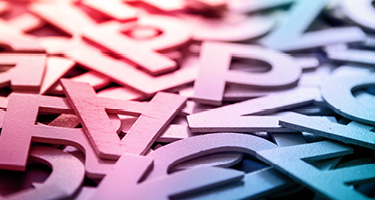Despite growing political backlash and a $1.1 billion class action lawsuit, the Canadian federal government continues to argue it has “no legal obligation” to provide First Nations access to clean drinking water.
As Canada responds in federal court to the class-action lawsuit filed by the Shamattawa First Nation in 2022, it holds firm with the argument that the Canadian federal government has “no legal obligation” to provide First Nations access to clean drinking water.
Filed by the northern Manitoba tribe the Shamattawa First Nation and its Chief Jordna Hill in 2022 on behalf of all First Nations members whose communities were subject to water advisories in effect on or after June 20, 2020, the class action lawsuit claims more than $1.1 billion in damages for the Canadian federal government denying the tribe’s human right to clean drinking water.
Placed under a boil water advisory since 2018, the Shamattawa First Nation calls the prolonged situation an “urgent human rights crisis.”
The Canadian government’s legal defense notes that constructing and overseeing independent water systems dedicated to First Nations is not a legal duty. Drinking water is more of a “political” choice than a legal obligation, Canada insists.
Alanda Robert, an associate at McCarthy Tétrault LLP and lead counsel for the Shamattawa First Nation along with 59 other affected First Nations, voiced the ongoing frustration of tribal leaders in revisiting past struggles. She highlighted her legal team's commitment to contesting the government's narrow-minded position.
"What First Nations leaders I think have made quite clear throughout this litigation is the disappointment and frustration of having to fight yet again for such a basic human right," said Robert.
The Canadian government’s legal team has sought to dismiss Shamattawa’s motion for summary judgment.
The case, which builds upon previous class action litigation settled for $8 billion in 2021, highlights a perpetuated systemic issue of inequality within Canada rooted in the nation’s history.
While a majority of the Shamattawa First Nation supports the class action, with 59 First Nations opting in, the scope of involvement is significantly broadened due to the automatic inclusion of all individual First Nation members who meet the necessary criteria.
Legal experts say Canada’s defense is likely to sway toward the notion that access to safe, clean drinking water isn’t a problem unique to Indigenous groups, leaving no inherent right to issue government funding.
Since publicly committing to ending all long-term boil water advisories on reserves by 2021, the Trudeau administration has not fulfilled its promise. Currently, 33 of the original 105 advisories remain in place, according to government data.
Shamattawa First Nation plaintiffs in the case have recently called attention to several public statements from left-leaning ministers that fully acknowledged federal responsibility to alleviate the water crisis affecting First Nations.
"Canada accepts the role that the government has played in First Nations' lack of access to clean drinking water," said Indigenous Services Minister Patty Hadju at a press conference in April 2022.
Two years later, Canada says that Hadju’s comment "was made in a particular context," and has emphasized it shouldn't be taken out of context, and shouldn’t be interpreted as a legal opinion on the matter, the CBC reported.
A federal judge overseeing the case may soon decide whether Canada is legally obligated to ensure clean drinking water for First Nations, with the class action lawsuit currently under judicial review.
Federal Court Justice Paul Favel, who grew up in the Poundmaker Cree Nation in Saskatchewan—where he struggled with a lack of running water and relative poverty—has reserved his decision following three days of hearings in Ottawa.
While the government's stance defines clean drinking water as a political decision, not a legal duty, it remains evident that the severe implications of this case extend far beyond any courtroom.
Whatever the outcome, the lawsuit underscores the ongoing debate of reevaluating legal frameworks and politics to protect the human rights of all Canadian citizens.




























